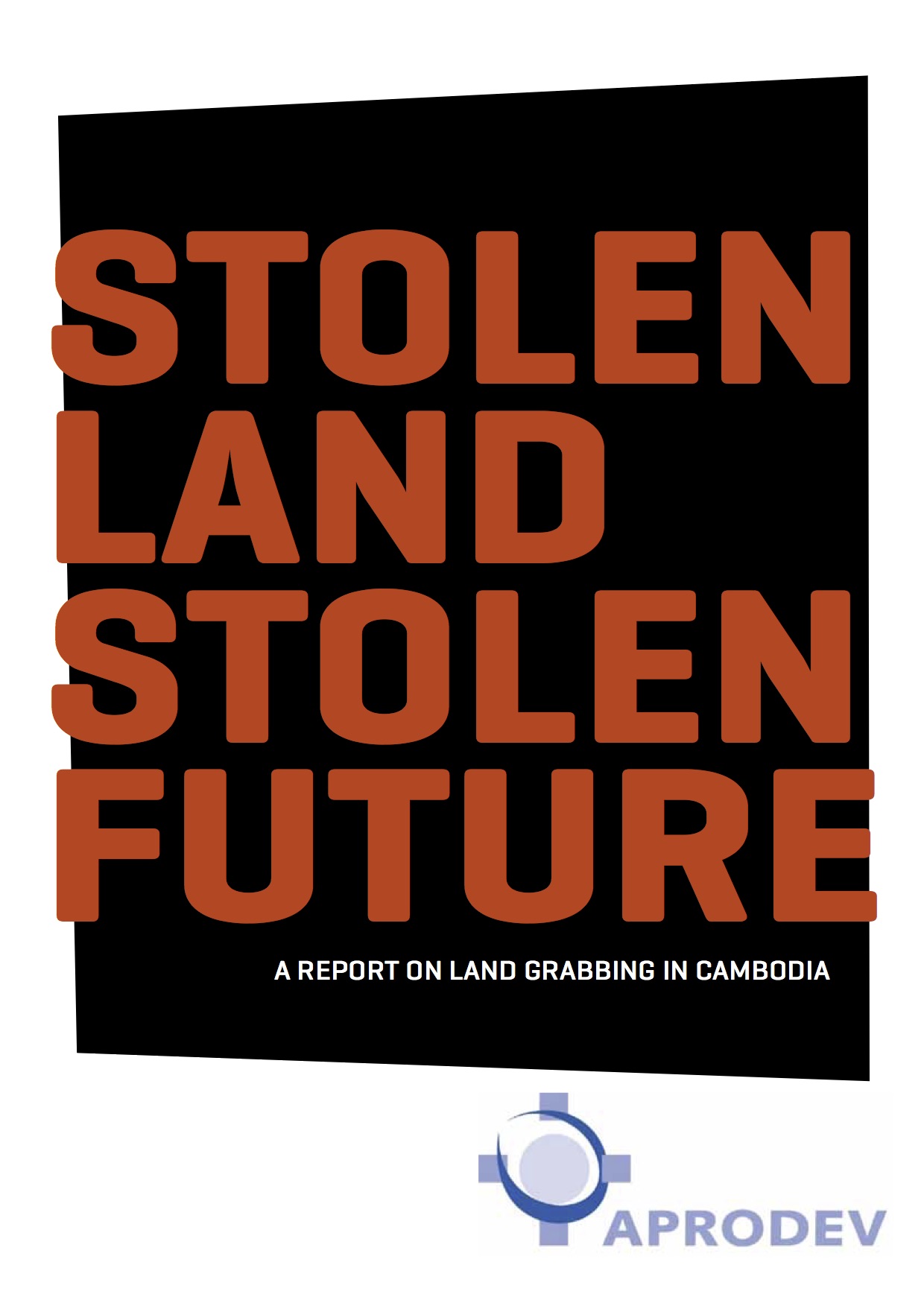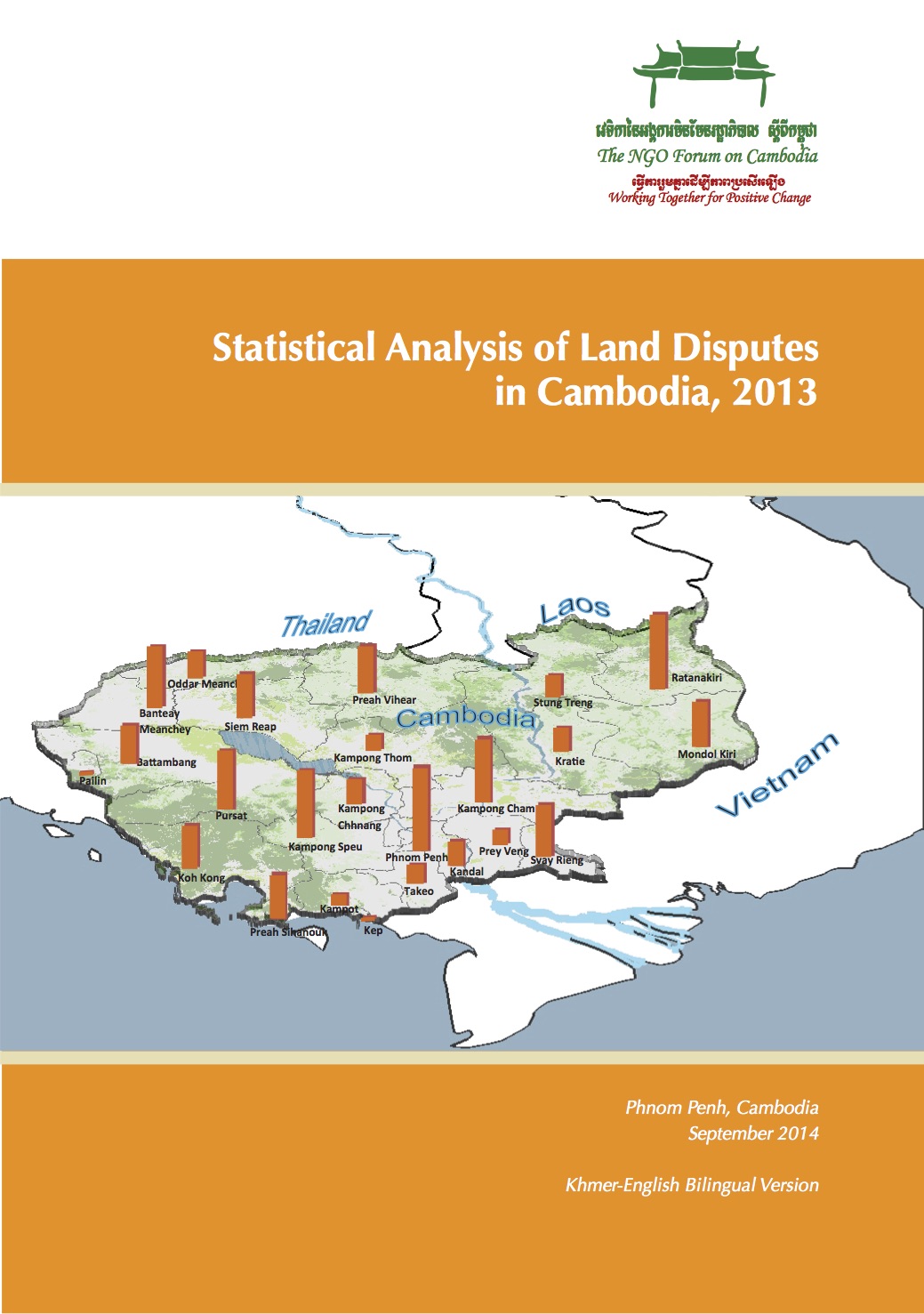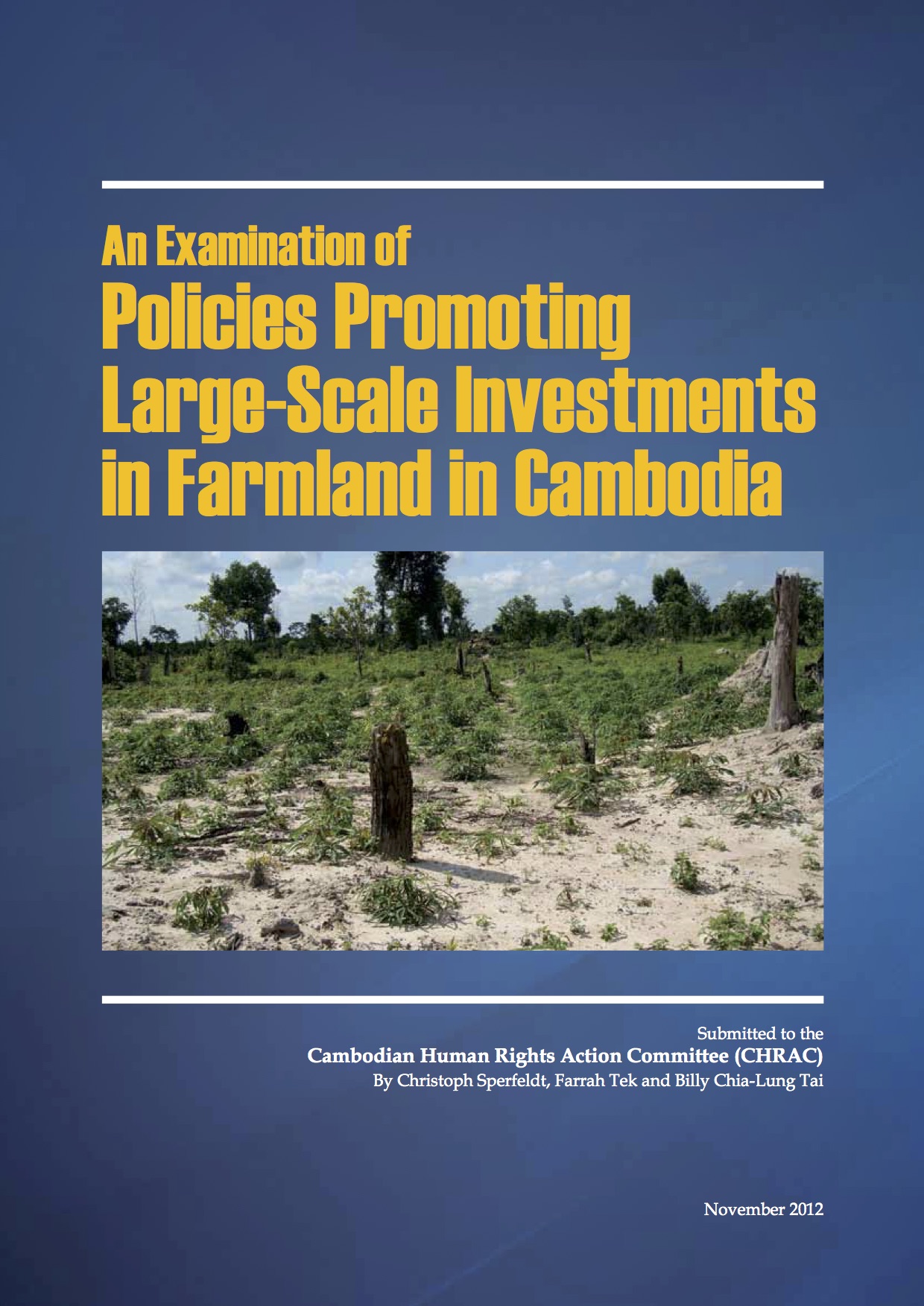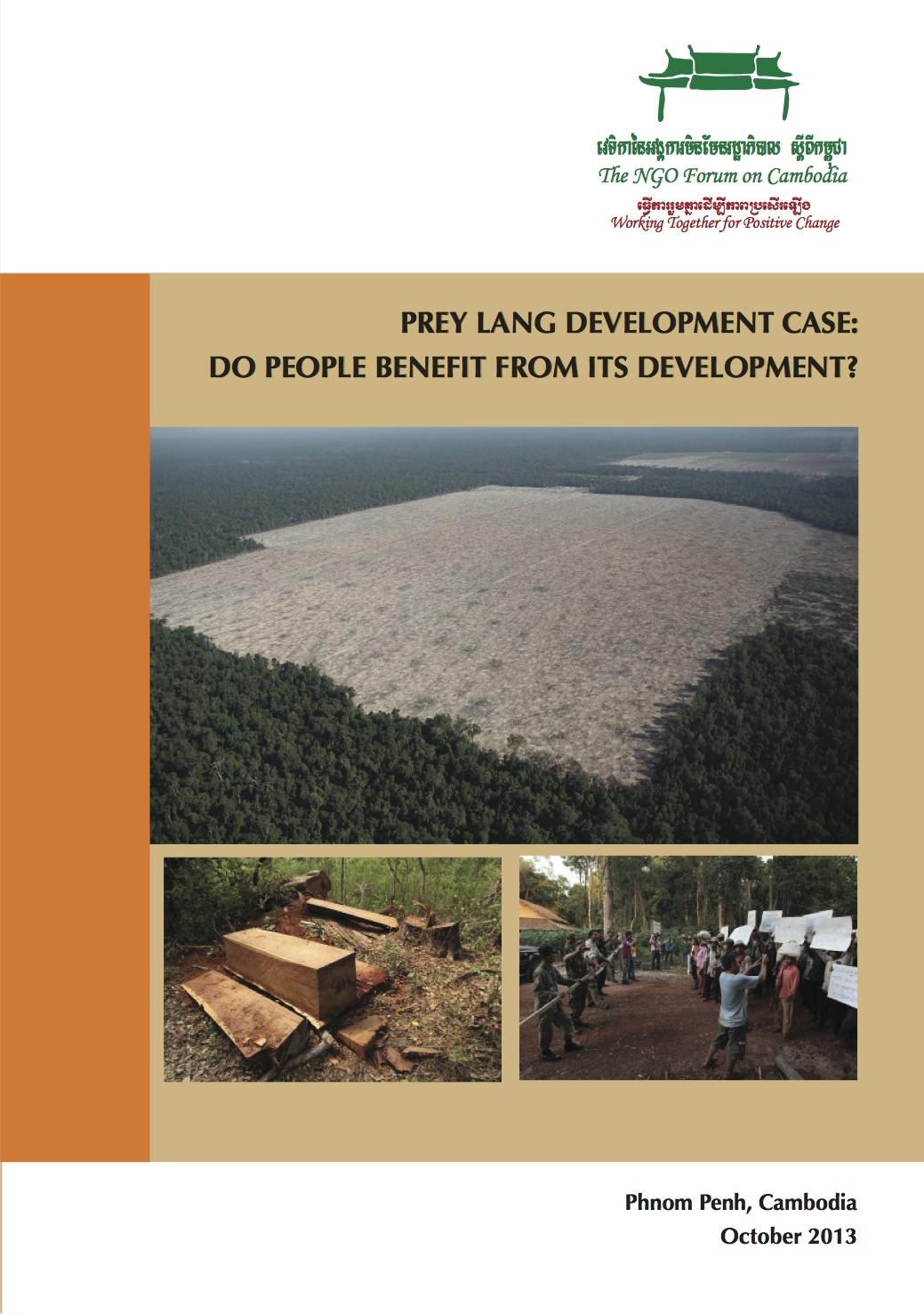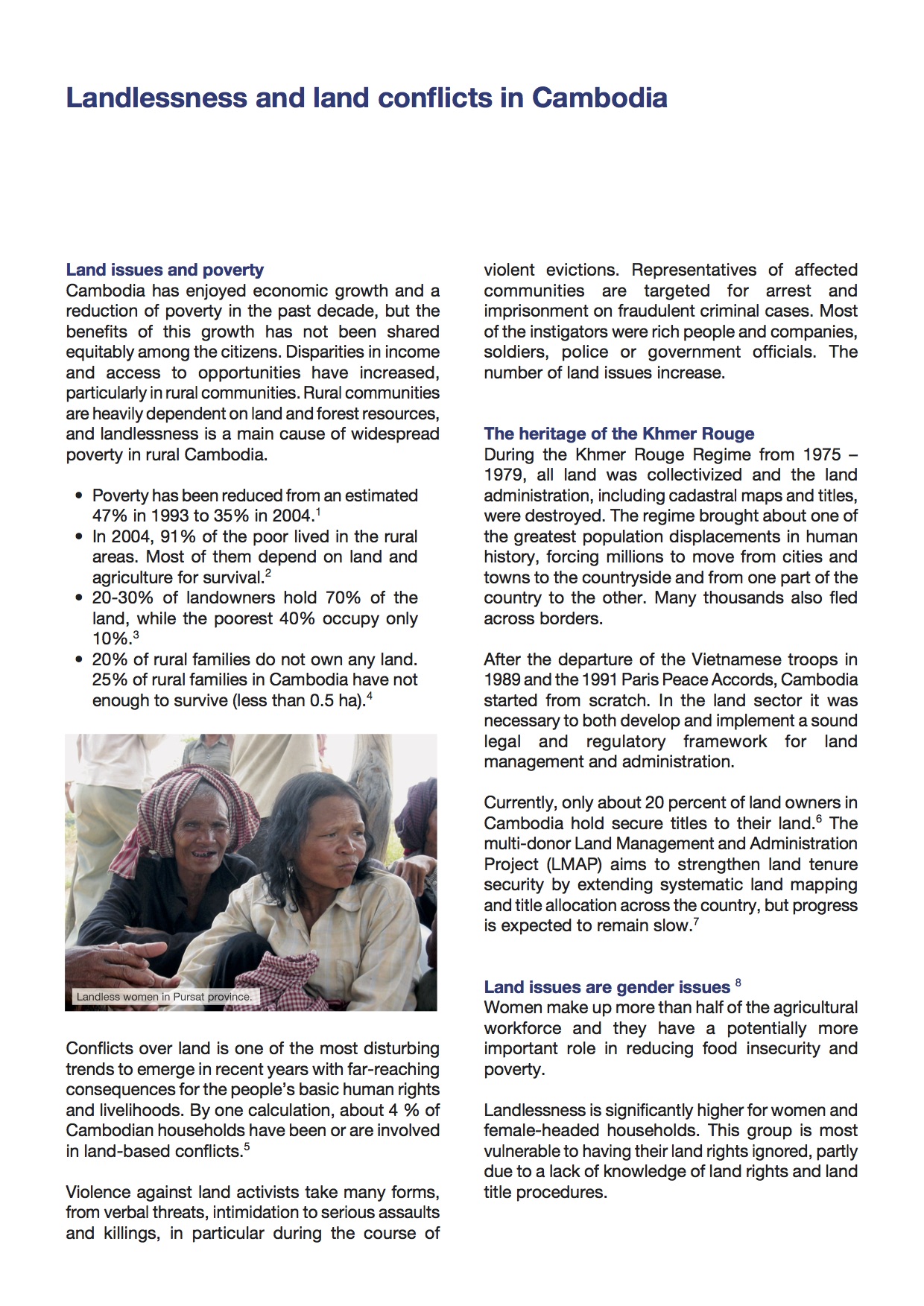Latest Entries
Stolen Land Stolen Future
Publication Year: 2011 / Sources: APRODEVThe focus of this report is land grabbing in Cambodia. it is based on APRODEV Agencies experience from many years of development work. The report documents how affected communities have lost their livelihoods because of land grabbing by national and international business corporations. Local communities have not been consulted and they have received little or no compensation for their loss. The communities have been evicted from their land and have faced systematic human rights violations.
Statistical Analysis of Land Disputes in Cambodia, 2013
Publication Year: 2014 / Sources: The NGO Forum on CambodiaThe purpose of the report is to provide documentary evidence of land disputes recorded throughout 2013. This evidence was gathered from articles on land disputes from local printed media, meetings with Land and Housing Right Network (LAHRiN)2 members, and through on site data collection. This report aims to raise awareness and understanding of the current situation regarding land disputes, and act as a resource for other stakeholders working on land issues, including the government and government officials, donors, LAHRiN members, Cambodian and international civil society and academic researchers, amongst others. The report will also provide documentation that NGO Forum and other groups may use to advocate for improved land tenure security for poor and vulnerable people in Cambodia.
An Examination of Policies Promoting Large-Scale Investments in Farmland in Cambodia
Publication Year: 2012 / Sources: Cambodian Human Rights Action Committee (CHRAC)Against the backdrop of ongoing intense debate in Cambodia about economic land concessions (ELCs) this paper aims to capture the status quo, more than ten years after the adoption of a new Land Law and almost seven years after the promulgation of the relevant Sub-Decree on Economic Land Concessions. It is hoped that a survey- like appeasement of the policies and practices of these land concessions to date will assist stakeholders in Cambodia in developing fresh policy responses to a series of significant challenges encountered until today. The question is to figure whether it is possible to identify a new ‘common ground’. Uncovering such common ground and identifying lessons from past experiences may assist in formulating policy responses to current problems with economic land concessions and possibly present new directions for policy-making. Having this in mind, this paper will focus on the overall policy framework, namely the basic objectives that have guided decision-making in the field of economic land concessions. In doing so, the focus will be on reconnecting this policy with its original objectives, in particular the reduction of rural poverty and rural development, as these objectives constitute the benchmarks against which any progress or failure of these policies should be measured.
Prey Lang Development Case: Do People Benefit from its Development?
Publication Year: 2013 / Sources: NGO Forum on CambodiaPrey Lang Forest is seriously threatened by Economic Land Concessions (ELCs), mining activities, and illegal logging and clearing, which appear to involve local and provincial authorities on at least some occasions, often with the support of the military and or companies involved in land concessions. Some ELCs are being granted illegally without following existing government legislation, conducting Environmental Impact Assessments (EIA) or consulting with local communities. These communities are losing the traditional lands and resources they rely upon to survive.
Landlessness and land conflicts in Cambodia
Publication Year: Unknown / Sources: STAR KampucheaCambodia has enjoyed economic growth and a reduction of poverty in the past decade, but the benefits of this growth has not been shared equitably among the citizens. Disparities in income and access to opportunities have increased, particularly in rural communities. Rural communities are heavily dependent on land and forest resources, and landlessness is a main cause of widespread poverty in rural Cambodia.

